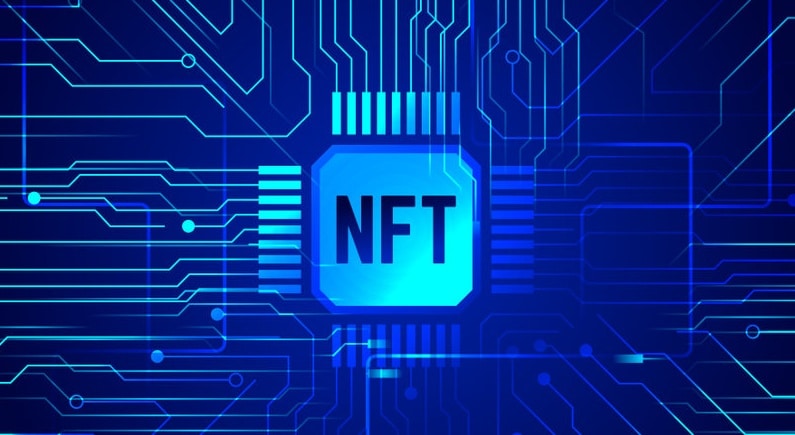NFT Security Digest For February 2022

Here is the latest digest of all things concerning NFT security and safety in the NFT realm.
LOOKS, SOS, and WTF Potential Threat Scares NFT Investors
Traders are likely to demand that market leaders recognize and reward their users shortly, so competitors like LOOKS, SOS, and WTF are all launching aggressive vampire attacks on OpenSea in response.
NFTs (non-fungible tokens) are on the rise and there does not appear to be an end in sight to the growth of these tokens. As of January 14, 2023, OpenSea has recorded trading volumes exceeding $1.0 billion, which is significantly higher than its closest competitor, LooksRare, which has eclipsed the platform, according to data from DappRadar.
Regardless of where you fall on the value scale, it seems that NFT collectors and traders seem to be shifting their viewpoints on what they perceive as valuable. During the first half of 2022, there has been a strong emphasis on “community,” as there’s been a buzz and a push to reward users for their participation.
While many NFT traders feel that the OpenSea marketplace betrays Web3, it has already generated over $3 billion in total volume, with over 1,200 orders issued through the platform in the first three hours. As a result, these investors are planning to boycott the marketplace, and their preference has turned to other companies that are more “Web3 friendly.”
Several platforms are currently getting hit by a vampire attack, including OpenSea’s NFT marketplace, LooksRare, among others, leaving disgruntled users migrating away from it for not valuing and rewarding their participation.
There is no question that participants are adamant in advocating for the value they create in the ecosystem and are convinced their competitors are meeting their needs.
However, it seems that other companies could potentially sway OpenSea’s users by claiming that they value and reward their participation? What if others could potentially exploit those who blindly follow these notions and protocols?
BFT Influencer Beanie Exposed as Scammer
It is no surprise that the topic of the NFT Ethics thread has become the talk of the town on the NFT Twitter account. Beanie has been exposed as a scammer numerous times by countless people. However, an odd event happened a few hours before the NFT Ethics thread on Twitter, in which another user, @derekcapo, made the same accusations about Beanie.
In addition, there are no other accusers of Beanie’s to date that have provided the amazing amount of evidence that NFT Ethics has provided in a series of Tweets. Considering this whole affair, however, it would be very interesting to know exactly what the influencer Beanie is being accused of by NFT Ethics.
In the thread, NFT Ethics uses screenshots that show the real names of Beanie and other people he’s worked with throughout the thread. As a result, this practice of exposing additional information of otherwise anonymous figures has become known as “doxing” and is not taken lightly. For this reason, NFT Ethics begins by explaining why they believe they were compelled to dox Beanie.
Some of the first Tweets are as follows:
“There are many advantages to decentralizing, but there are also some disadvantages for which there is currently no solution in the NFT space. It seems that anonymous individuals are less likely (or may not have any incentive at all) to act morally/ethically and take responsibility for their actions in public.”
“However, there is no doubt in my mind that NFT Ethics would not be as persuasive if they had not revealed Beanie’s real name. As a result, there is evidence that Beanie has been associated with several alleged scams in the past. So, in addition to his Twitter persona, he also appears to possess a real-life identity.”
“Additionally, it allows third parties to verify the evidence, allowing them to fact-check it. After all, NFT Ethics confirms that all the proofs and evidence it provides are based on available data.”
Pranksy Hit By NFT Scammers
Pranksy is an entrepreneur, a collector of NFTs, and a social media influencer with hundreds of thousands of followers. His business strategy is to invest in cryptocurrencies as soon as they become available and then aggregate many tokens. In effect, he gives liquidity to the project and volume to it. Following a project that cost Pranksy six hundred dollars, his NFT collection grew exponentially, to the point that he now has one of the largest collections of NFTs on the planet.
There is no doubt that Pransky is a role model for NFT collectors in the NFT space. The scammers have used his name to scam people because it makes perfect sense to use it in scamming people. The famed Internet prankster Pranksy announced this new scam to his followers by tweeting, “A new scam has emerged after someone manipulated my address with the intent to defraud.”. In the event you receive a random ERC20 from me, do not grant this any permissions; ignore it.”
Pranksters have made headlines for attracting scammers before, but this is not the first time. It appears that Pranksy was conned into purchasing a seemingly-legitimate Banksy NFT collection in September 2021. Ultimately, the collection turned out to be a fake. The fraudster refunded the collector in an unexpected twist of fate.
Others, however, did not have such good fortune. Waka Flocka Flame, rapper, and NFT guru, lost almost $19,000 in an NFT scam at the end of December, whereas @shanterpster lost a Bored Ape worth $281,000 in the same scam. NFTs are gaining more and more attention, but they also have their downsides. However, you should not let this discourage you from taking part!
NFT Artist XCOPY Calls For Twitter Verification After Being Copied
There was just a case of someone copying and pasting the Twitter handle of top NFT artist XCOPY! Unfortunately, it appears that this duplication has not been spotted easily by the community. The letter “O” is used in the authentic account, whereas in the fake account, the number “0” appears.
It is unknown what the intention of the fake user is. Some of the 122 Thousand users of XCOPY have suggested it’s just a joke and that it’s not serious. However, the word “COPY” is on the username, so it’s impossible that it’s anything beyond a joke. On the other hand, some fans are concerned and are urging everyone to remain vigilant. There is no wonder why this is so since hacks and scams have been hitting the headlines on Discord in recent weeks.
It would have been a disaster if no one on Twitter had noticed the fake XCOPY account as XCOPY enjoys a large following there. This has led to the community requesting verification of the London-based digital artist’s account on Twitter.
What is troubling about this situation in the NFT community that it is making such a stir? By and large, XCOPY can be regarded as the original gangster of the crypto art world. XCOPY has proven to be a leader in the NFT art community, having been one of the original artists on SuperRare and launching four of his pieces on Nifty Gateway. The community is very protective of him, so let’s say that he is protected.
As well as regularly posting messages of positivity and growth to his Twitter followers, he also regularly engages with his followers. In this way, the platform is sacred to both him and his fans.
Wash Trading on the Rise as NFT Traders Sell NFTs to Themselves
NFTs are becoming increasingly prevalent in the market, according to a report released by blockchain data firm Chainalysis this week. As a result, people are buying their own NFTs to drive up prices. Known as “wash trading” by some, it is the act of buying and selling securities in order to divert attention from the people observing what is happening in the market. This practice was once common on Wall Street but has been illegal for over a century. Despite this, the NFT market has proved to be one of the safest and most profitable places on the internet for scammers because of how unregulated it is.
It was found that the same traders had sold NFTs back and forth at least 25 times, likely an instance of wash trading where the same NFTs were exchanged over and over again. Specifically, the study identified a group of 110 alleged NFT wash traders that have raked in $8.9 million in profit due to this practice. It was also found that there was some evidence of money laundering in the NFT marketplace in the second half of 2021. According to a recent report by the Bitcoin Foundation on NFT marketplaces, this shows that the value of cryptocurrency sent by scam addresses to these marketplaces spiked by more than $1 million in the third quarter of 2021. In addition, the number of sales made through illicit addresses in the fourth quarter of 2021 amounted to approximately 1.4 million dollars.
The legal status of “NFT wash trading” is somewhat murky. While wash trading is illegal in conventional securities and futures, it has yet to be enforced in the context of NFTs. These are the authors’ comments on a recent study in the journal Financial Regulation.
Tokens that are non-fungible, also known as non-fungible tokens or NFTs, are emerging as a new asset class of digital tokens on the blockchain, and they can be purchased using the cryptocurrency Ethereum. Crypto collectibles are created from a wide range of media including photographs, GIFs, songs, write-one and picture cards, and even tethered artwork. NFT Market is estimated to be worth anything between $7 billion and $44.2 billion. There are many segments within the NFT market. The importance of digital assets quickly gained attention following their introduction in 2021, with both celebrities like Mark Cuban, Tom Brady, and Reese Witherspoon embracing them and using them to great effect.
As the field of NFTs, a still relatively new one, has boomed in popularity in recent years, some skeptics have begun questioning its legitimacy and necessity. There have been increasing numbers of high-profile NFT sales in recent years, such as the $71 million purchase of the artist Beeple’s collection last year. As long as the tokens themselves are not regarded as securities, they do not have to follow the regulations and laws that govern US stocks, for example. In recent months, there has been a proliferation of scams occurring in the field of NFTs, including fake NFTs and money laundering scams.
Bitcoin and NFT Price Swings Prompt Biden to Declare National Emergency
After extreme volatility hit bitcoin, ethereum, and collectible non-fungible tokens (NFT), the Biden administration rushed to get a handle on the rapidly growing cryptocurrency market, quickly recognizing the need to be proactive rather than reacting to the market as a whole.
Bitcoin prices, ethereum, and NFT have taken a wildly fluctuating journey over the past year, with bitcoin prices rising to almost $70,000 the mid-last year before plummeting back down to around $37,000 this year. A similar fluctuation has been experienced by Ethereum, the second-biggest cryptocurrency after bitcoin. In contrast, the market for NFT has grown from virtually nothing to an impressive $41 billion in the year 2021.
Several reports suggest the administration is gearing up for an executive order that will make it necessary for federal agencies to regulate digital assets such as bitcoin, ethereum, and NFTs in the interest of national security, the Associated Press reported last week.
A person familiar with the White House’s plan said in an interview with Barron’s that the plan was designed to look holistically at digital assets and develop a set of policies that would give coherence to what the government was trying to do in this area, noting that national security council, state department, Treasury Department, National Economic Council, and Council of Economic Advisers would be consulted.
It is significantly important that we work with other countries on synchronization because, as a rule, digital assets do not remain in one country.
From $200 billion at the start of the year to more than $1.5 trillion today, this market is ballooning as people worldwide buy into cryptography as a potential solution to their financial problems. Furthermore, NFTs – digital certificates largely based on the Ethereum blockchain – are becoming increasingly popular in the worlds of art and sport as a new form of revenue generation.
The interest from technology giants such as Facebook to develop its Meta service and Apple Inc. to develop virtual reality worlds known as metaverses and how blockchain-based digital assets such as bitcoin, ethereum, and NFTs become the foundations of metaverses also has led to speculation about how blockchain-based scarce assets such as bitcoin, ethereum, and NFTs could help power these worlds.
The pace and scale at which bitcoin, ethereum, and digital tokens have been adopted have surprised some. Some have even warned the emergence of these digital assets could be a threat to the global financial system as nations begin experimenting with them. It is the first country in the world to adopt bitcoin as a legal tender and commenced purchasing bitcoins in September.
According to recent reports, the administration is gearing up to issue an executive order related to cryptocurrency – with Joe Biden reportedly pledging to direct federal agencies to assess cryptocurrency risks and opportunities.
The executive order, Bloomberg reported, would “place the White House in the center of Washington’s efforts regarding cryptocurrencies.” The order could be signed by Biden as early as next month.
Other countries, such as Morocco, have also recently considered clamping down on bitcoins and cryptos and following China’s example in imposing a blanket crypto ban. Since China’s ban on bitcoin mining last year, more American bitcoin miners have appeared, mainly because the Americans use so much energy to mine bitcoins.
In the wake of the Russian central bank’s recommendation that bitcoin and cryptocurrencies be banned outright, a senior Russian official said this week, “We need to regulate, not ban.”. However, according to Russian media reports, President Vladimir Putin has voiced support for proposals to boost crypto mining.
The former health minister has said there will be “no end to the pain of the UK with [its] tepid attitude to cryptocurrencies.” In contrast, the former finance minister, who now serves as a senior adviser to a London-based institutional crypto exchange, has said it’s “earth-shattering” that the UK has not yet adopted a crypto-friendly regulatory system. Moreover, Hong Kong has fallen significantly behind other financial hubs regarding regulating the burgeoning crypto industry.
Nigel Green, chief executive of financial advisory group deVere, wrote in an emailed statement that the two largest world powers appear to be competing over who will be the first to accept and regulate bitcoin and cryptocurrencies on a federal level.
The political and ideological differences between Washington and Moscow remain unmistakable, but both sides appear to increasingly agree that physical currencies are.
As we reported earlier this month, Fidelity Investments advised countries to follow El Salvador’s example and buy bitcoin if the price is low, predicting those who do so will be in a better position to compete with their peers.
It seems, even though the US currently holds the world’s reserve currency, that the future belongs to digital technologies,” Green added. “This would explain why Biden is rushing the White House to issue a directive that would give the White House a central role in setting policy and regulating digital assets in the future.”
A former US presidential candidate and secretary of state under President Barack Obama turned to bitcoin and cryptocurrencies late last year to warn that the growth of bitcoin could undermine the US dollar’s status as a reserve currency.






